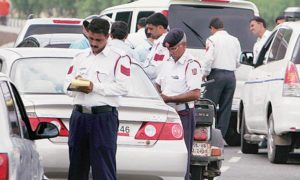NEW DELHI: French news portal Mediapart has, in a fresh report, alleged pay-offs received by middleman Sushen Gupta from Dassault Aviation for influencing the sale of Rafale fighter jets to India and published documents on Monday claiming them to be ‘bogus invoices’ raised by Gupta against the manufacturer of Rafale and that he received 7.5 million euros as kickbacks between 2007 and 2012.
While the report mentions sale of 36 jets, as was done by the NDA government, the period under review coincides with UPA’s term in office.
The alleged pay-offs received by Gupta to ‘facilitate’ the Rafale deal during UPA regime has been corroborated by sources in the investigative agencies, who claimed that a probe is pending as the ongoing investigation against the middleman is restricted to the Agusta-Westland bribery case. A separate FIR needs to be registered in the Rafale pay-offs and that will cover Gupta and his benefactors, a source said.
The bribes were paid to Gupta through his Mauritius entity Interstellar, according to the French website, in the guise of “dubious IT contracts”. Gupta is one of the prime accused in the alleged laundering of Rs 423 crore bribes received in the AgustaWestland VVIP chopper deal. Interestingly, he had allegedly received much of the VVIP chopper deal pay-offs through his Mauritius-based Interstellar Technologies Ltd. Gupta was arrested by ED in 2019 in the case.
In its chargesheet filed against Gupta later, ED had claimed that the AgustaWestland kickbacks moved from one company to another as consultancy fees. From Tunisian entities, the bribe proceeds were transferred to Interstellar Technologies in Mauritius.
Dassault Aviation had in April denied all allegations of pay-offs in its supply of 36 Rafale jets to India.
It may be recalled that the UPA regime had shortlisted Dassault Aviation for supply of 126 fighter jets but could not conclude the deal due to differences on maintenance costs and other issues that saw negotiations drag on for several years. The deal was recast as a government-to-government contract by NDA and renegotiated to 36 fighters in 2016. After allegations of overpricing and gratification, the deal was cleared by the Supreme Court and the CAG with the latter concluding that it was a little under 3% cheaper than the terms discussed by UPA.





































